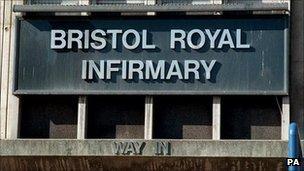In 2009, the Labour Government launched its ‘Transforming Community Services’ policy for public healthcare. PCT boards were instructed to evaluate their provider services and consider a variety of models for future service delivery. One model much favoured by the current coalition Government is social enterprise, defined as ‘businesses established to address a social or environmental need’.
The key word in the term ‘social enterprise’ is the latter. No matter how much spin it is given, this ‘transformation’ is the privatisation of health services. It is well known that when services are taken out of public ownership, workers’ wages are cut and terms and conditions are attacked as organisations scrabble to win contracts. What is more, privatised public services hardly have a great record of delivering good quality comprehensive care.
The first our Local was aware of what was happening was in conversations with health workers, who told us that ‘community services here are already a social enterprise’. After some research we discovered that this was not the case at all. Across the West Country, provider services in seven different PCT areas had applied to the Strategic Health Authority (SHA) to leave the NHS and become social enterprises. In Bristol alone, this affects around 1,200 NHS staff working in over 40 different community services. If approved this would mean that community health services in these areas would be run by the private sector from 1 October 2011, but all seven applications were yet to go before the SHA board – not the fait accompli people seemed to think.
We spoke to our union branches to find out about the campaign against these privatisations. We got blank expressions and shrugged shoulders. One branch secretary even thought that the deal had already been sealed for the service which she not only represented but worked in herself!
Aware that our Local was nowhere near influential enough to make any significant impact, and wary of being viewed by health workers as outsiders agitating for political ends, we formed a small group with health workers sympathetic to what we were doing and started campaigning against social enterprises. We leafleted staff meetings organised by management and spoke to as many affected workers as we could. We arranged a meeting for workers with speakers from a successful campaign against social enterprise and we pressed for action within our union at branch and regional level. Despite our best efforts and the efforts of others within and outside the unions, all seven applications were approved by the SHA and it looks like community health services in much of the West Country will be lost to privatisation.
We feel that the anti-privatisation campaign failed for a number of reasons, primarily the lack of strategy and leadership from the social democratic trade unions. Many branch officers and regional officials appeared like rabbits caught in the headlights. After years of compliance and social partnership under a Labour government they seemed utterly unable (and in some cases unwilling) to do anything to resist a full-on attack on public services. In the final theatre of conflict their strategy was to make pleading representations to the South West SHA Board. Unsurprisingly the board ruled in the interests of the privateers despite being presented with evidence that demonstrated very little staff support for social enterprises.
Branch officers and regional officials told us that there simply wasn’t any appetite amongst the membership for resistance to these plans. However, very few NHS workplaces have active stewards or safety reps, and rank and file meetings are exceptionally rare. Consequently the gap between union member and branch officer can be, and often is, gaping. When we leafleted staff members attending management propaganda meetings we were told by the workers that this was the first time they had had any information opposing social enterprises. With so little action by the unions and such slick marketing from management, it was no surprise that many workers thought that the deal was sealed months before it actually was.
The lack of union activity also appeared to have bred a mentality of compliance and a sense of fatalism amongst the workforce. For example, we called a meeting of all the workers affected in Bristol and leafleted almost every single community health workplace in the city and only three people attended. For most workers, nothing was going to change because nothing had been successfully challenged before.
As an SF Local we were totally overwhelmed by this campaign. Despite our concerns for other localities in our region, we very quickly realised that we could only hope to influence events in our local area. We made the strategic decision early on to work within the trade union movement as they held the power and influence to halt the process of privatisation. We considered the alternative of campaigning and organizing from the outside, possibly with the local anti-cuts movement, but felt that the campaign would be limited without organising industrial muscle.
Although the battle for community services in many areas of the South West appears to be lost we have learnt a lot from the struggle. When they come for the acute and secondary services, we’ll be here with a more determined and better organised response.
